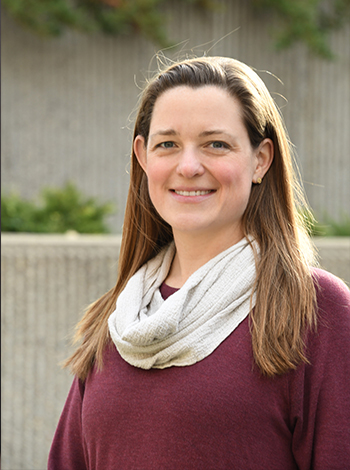Faculty
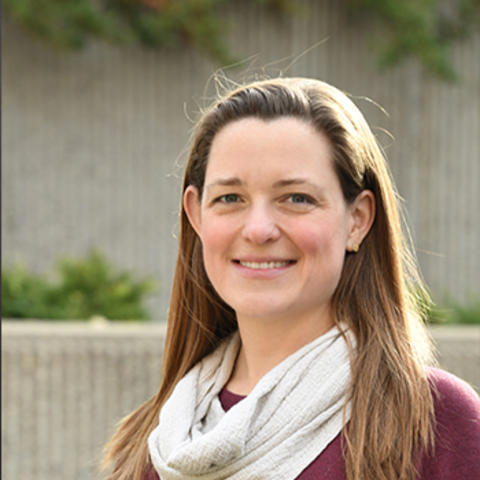
Bio
I received my BA in Psychology from Emory University. I completed my PhD in clinical psychology at the Illinois Institute of Technology. I did my internship here at the University of Minnesota Medical School and my postdoctoral fellowship in the child and adolescent mood program at Emory University School of Medicine. I am pursuing a Master’s in Public Health with an emphasis on Administration and Policy.
I am a clinical child psychologist with expertise in interprofessional education and the care of families affected by trauma. I direct the Behavioral Health Clinic for Families which is an outpatient program dedicated to training psychology practicum students. I am also the Associate Training Director for our APA-Accredited Psychology Internship.
Outside of the department, I serve as a faculty member for the Center for Interprofessional Health. My focus is on faculty and preceptor development so that educators are as well-versed in the principles of interprofessional education as our learners are. I co-founded the Workplace Interprofessional Learning and Development (WILD) Series as well as the CIH Affiliate Faculty Program. I also co-direct the Rothenberger Leadership Academy - a cohort-based leadership development program for physicians at the University of Minnesota Medical School.
Expertise
- Trauma-informed care of youths and families
- Interprofessional collaboration and education
Administrative Assistant
(for academic support only)
Molly Jokimaki
jokim004@umn.edu
In the Media
- 2023: Featured in this article titled, “Celebrating the many ways that psychologists help us.”
- 2022: Featured in this Office of Academic Clinical Affairs article titled, “New Interprofessional Program Helps Preceptors Advance Skills and Knowledge to Apply in the Clinical Learning Environment”.
- 2022: Featured in this article titled, “Psychology Week: one psychologist’s perspective about the profession”.
- 2021: Featured in this M Physicians article titled, “Behavioral Health Clinic for Families Reflects on a Successful Transition to Virtual Care”.
- 2021: Interviewed for this piece titled, “Life at the new Masonic Institute for the Developing Brain brings integration in care and learning, and opens opportunities for collaboration”.
Research Summary
Dr. Zagoloff's research focuses on interprofessional collaboration and education. This includes directing the department's move toward team based care and disseminating outcomes relating to this experience. Additionally she tracks efforts at enhancing interprofessional learning opportunities among numerous groups of learners.
Clinical Summary
Dr. Zagoloff is a Licensed Psychologist in Minnesota and provides clinical services in the Child and Adolescent Anxiety program. She conducts psychological assessments as well as individual therapy for children, adolescents, and adults. In conjunction with individual therapy, Dr. Zagoloff conducts family therapy and parent guidance sessions when indicated. She is nationally certified in Trauma-Focused CBT.
Dr. Zagoloff has been trained in Cognitive-Behavioral, Dialectical Behavior, and Acceptance and Commitment Therapies as well as Behavioral Activation for depression.
Education
Fellowships, Residencies, and Visiting Engagements
Licensures and Certifications
Honors and Recognition
Professional Memberships
Selected Publications
Selected Presentations
Contact
Address
Masonic Institute for the Developing Brain, 2025 E River Pkwy, Minneapolis, MN 55414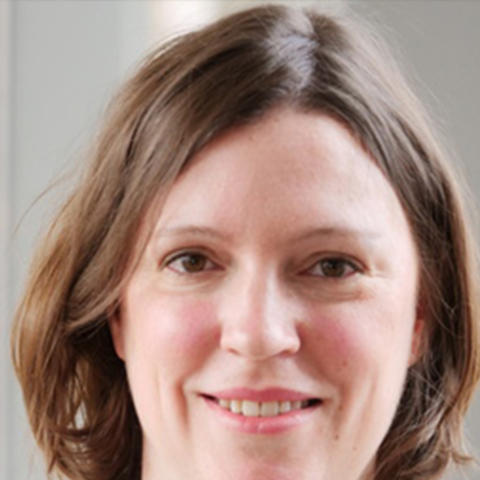
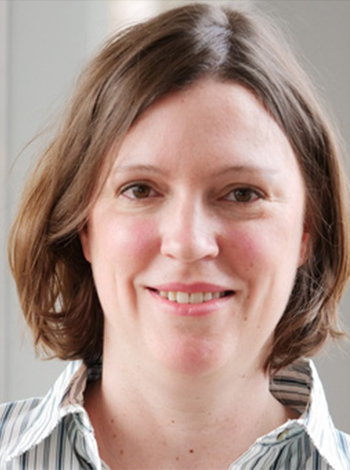
Bio
I am a psychologist and neuroimaging expert, a faculty member in the Department of Psychiatry and Behavioral Science, and a member of the Medical Discovery Team on Addiction. I received my PhD from Maastricht University in the Netherlands, where I developed fMRI-based neurofeedback training protocols for three different clinical populations. During my postdoctoral training at Mount Sinai, New York, I focused on the potential for personalized medical treatments in human drug addiction, investigating novel approaches for individualized treatments in cocaine-addicted individuals.
My current work focuses on establishing the existence of neurobiological subtypes in different addicted human populations, with the goal of developing individualized brain-based and technology-supported treatments for human drug addiction. My research group combines the analysis of existing large-scale multimodal data sets with the acquisition of new data through a variety of techniques such as interviewing, neurocognitive testing, questionnaires, and multi-modal neuroimaging. Novel computational methods are employed for linking social, demographic, neurocognitive, personality, and clinical measures to the neuroimaging data, to explore the existence of neurobiological subtypes within the addicted population. The goal of this research is to develop a neuroscience-derived individualized treatment for individuals who are at risk for either escalation of drug use or relapse. Within the department, I am a member of the Grand Rounds Committee.
Expertise
- Large-scale multimodal data sets
- MRI
- Human drug addiction treatment
Administrative Assistant
(for academic support only)
Shelly Slominski
slomi001@umn.edu
In the Media
- 2023: Dr. Zilverstand and her research team are featured in this article titled, “NIH grant enabling U of M team to identify factors involved in alcohol use disorder relapse following treatment.”
- 2023: Quoted in this Mpls Star Tribune article titled, “As Minnesota considers legalizing marijuana, what does research say about the risks?
- 2021: Dr. Zilverstand’s work with a national study is highlighted in this KSTP story titled, “U of M team leading 'largest study of early childhood brain development”. Her testimony before the Minnesota legislature earlier this year helped make the state’s portion of the study possible.
- 2021: Helped change a law to get some important research started in this article titled, “Lobbying Efforts Lead to Research Opportunities on the Effects of Substance Use on Families”.
Research Summary
Dr. Zilverstand's current work focuses on investigating how individual differences contribute to human drug addiction. Her research group combines the analysis of existing large-scale multimodal data sets with the acquisition of new data through a variety of techniques such as interviewing, neurocognitive testing, questionnaires and multi-modal neuroimaging. Novel computational methods are employed for linking social, demographic, neurocognitive, personality and clinical measures to the neuroimaging data, to explore the existence of neurobiological subtypes within the addicted population. The goal of this research is to develop neuroscience-derived individualized treatment for individuals who are at risk for either escalation of drug use or relapse.
Teaching Summary
Dr. Zilverstand is a faculty member of the Graduate Program in Neuroscience and provides training and supervision for neuroscience, psychology and psychiatry students, residents, and fellows in the University of Minnesota Medical School.
Clinical Summary
Dr. Zilverstand's clinical interests include addiction and other Impulse Control Disorders.
Education
Fellowships, Residencies, and Visiting Engagements
Honors and Recognition
Professional Memberships
Languages
Selected Publications
Selected Presentations
Contact
Address
Department of Psychiatry & Behavioral Sciences, F282/2A West Building, 2450 Riverside Avenue South, Minneapolis, MN 55454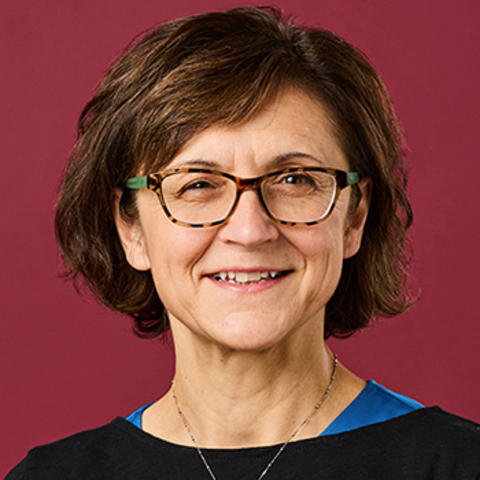
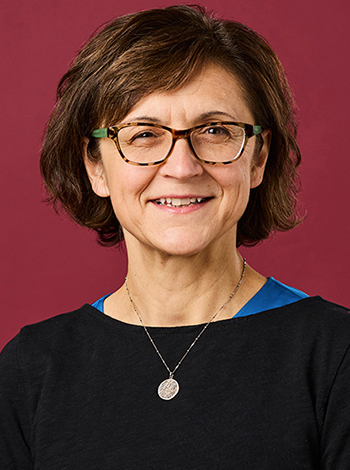
Bio
I am an Associate Professor for the Department of Psychiatry & Behavioral Sciences and a faculty member at the Bakken Center for Spirituality and Healing. I received my M.D. from the Wayne State University School of Medicine and obtained my psychiatry residency training at the University of California Los Angeles (UCLA). As part of my training I served as a Chief Resident of the UCLA Behavioral Health Clinic, completed the UCLA Robert Wood Johnson Clinical Scholars Program, and pursued additional training in mindfulness and integrative medicine. I am a graduate of the UCLA Center for East-West Medicine Fellowship and a Diplomate of the American Board of Integrative Holistic Medicine. I have a particular focus on adult ADHD and mindfulness-based interventions.
Through my research work as the UCLA Robert Wood Johnson Clinical Scholar, I pioneered the application of mindfulness in ADHD and co-developed the Mindful Awareness Practices (MAPs) for the ADHD program. I am a founding member of the UCLA Mindful Awareness Research and an author of an award-winning book The Mindfulness Prescription for Adult ADHD: An 8-Step Program for Strengthening Attention, Managing Emotions, and Achieving Your Goals, and a second book Mindfulness for Adult ADHD: A Clinician’s Guide.
At the University of Minnesota, I serve as one of the key faculty of the UMN Adult Psychiatry Residency Program where I am an outpatient clinic supervisor for psychiatrists-in-training. I direct the Adult ADHD Clinic and lead the Integrative Psychiatry and Wellness Program. I am also a member of the Wellbeing and Impact Committee, Climate Committee, and Grand Rounds Committee.
Expertise
- ADHD
Administrative Assistant
(for academic support only)
Teneshia Collins
coll1148@umn.edu
In the Media
- 2023: Featured in this Wondermind article titled, “What Is Inattentive ADHD, and Do I Have It?”
- 2023: Featured in this issue of Childart dedicated to mindfulness. Her article titled, “Take Small Steps, Notice Your Emotions,” is on pages 26-27
- 2023: Featured in this Time online article titled, “What's Driving the Demand for ADHD Drugs Like Adderall.”
- 2023: Quoted in the Wondermind article titled, “Hold up, ADHD is a disability?”
- 2023: Quoted in this MedScape article titled, “ADHD Exacts Higher Mental Health Toll vs Autism in Adults.”
- 2022: Quoted in this Huffington Post piece titled, “What It’s Really Like To Parent When You Have ADHD.”
- 2022: Featured in this online article titled, “Women with ADHD & ASD are Starting to Get Accurately Diagnosed — But it's Decades Late.”
- 2022: Featured in this piece titled, “Talking adult ADHD with U of M,” and this MPR piece, “No longer just a kid thing: more women diagnosed with ADHD later in life.
- 2022: Featured in this article titled, “Calm space: How to meditate when your brain wavers and you can't sit still”.
- 2022: Quoted in a Harper’s Bazaar article titled, “Coming Into Focus,” about a woman growing up with ADHD
